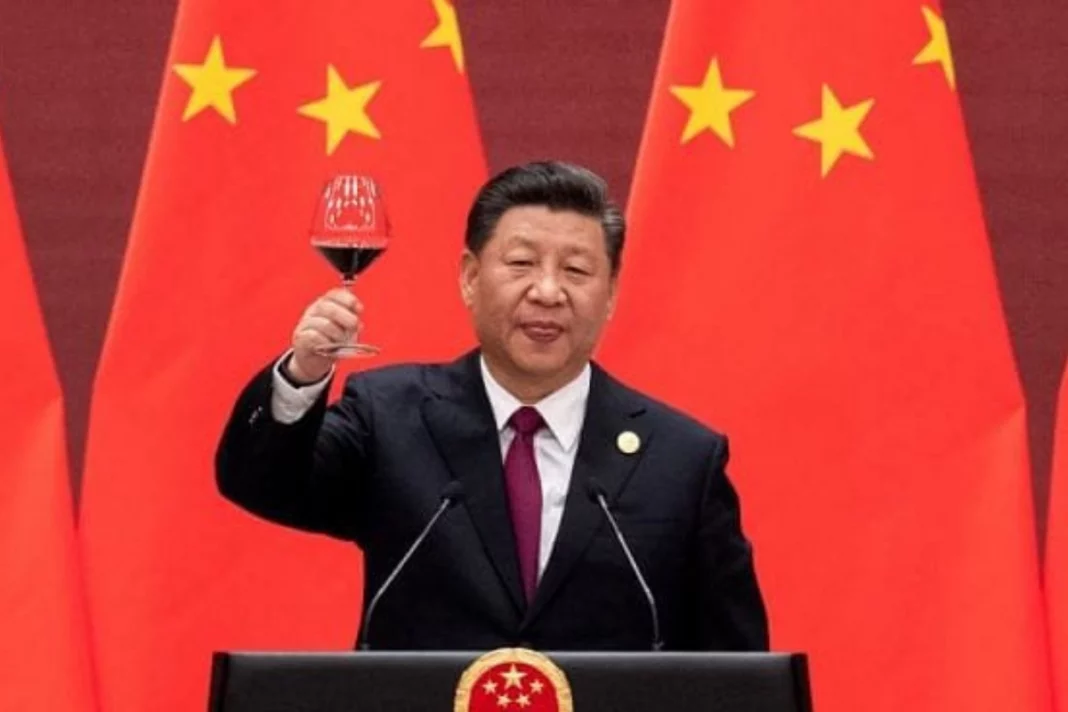China: On Sunday, Xi Jinping won an unprecedented third term as China’s President and elevated some of his closest allies in the Communist Party, solidifying his position as the country’s most powerful leader since Mao Zedong.
After decades of elite power-sharing, the Chinese Communist Party Central Committee dramatically shifted the country back toward one-man rule by electing Xi as its general secretary for another five-year term.
As he addressed the press, Xi Jinping asserted that “the world needs China.”
China needs the rest of the world, but it also needs to develop, according to Xi. “After more than 40 years of relentless reform and opening up efforts, we have achieved two miracles: rapid economic growth and sustained social stability.”
In order to earn the tremendous trust of his party and the people, he vowed to “work tirelessly in the fulfilment of his obligations.”
Also Read: Pakistan: Former PM Imran Khan, May be Disqualified from Holding Public Office. Why? Read This
Also, Xi was given another term as chairman of China’s Central Military Commission.
The 69-year-old is now almost set to win a third term as China’s leader, which will be publicly declared in March during the annual legislative sessions of the government.
After a week-long Congress of 2,300 hand-selected party delegates, during which they confirmed Xi’s “core position” in the leadership and authorised a comprehensive overhaul that saw previous competitors step down, he was formally installed.
Around 200 top party officials were chosen to make up the new Central Committee at the 20th Congress, and they reassembled on Sunday to pick Xi and the other members of the Standing Committee, which represents the pinnacle of Chinese political authority.
There were several of Xi’s closest allies named in the seven-person committee.
Following his promotion to number two, Xi’s confidant and former Shanghai party boss Li Qiang is now likely to be chosen premier during the government’s annual legislative sessions in March.
Since taking office ten years ago, Xi has amassed more power than any previous leader of modern China except Mao.
In 2018, he removed the two-term restriction for president, enabling him to continue in office indefinitely.
Xi has also presided over China’s rise to become the second-largest economy in the world, a significant military buildup, and a far more assertive global posture that has faced fierce criticism from the United States.
Despite having almost unrestricted control, Xi will face numerous obstacles over the next five years, such as managing the country’s debt-ridden economy and the intensifying US competition.
Also Read: West Bengal: TET Qualified Candidates Demonstrating Against Job Dispersed, Forcibly Pulled into Bus by Police. Watch Video
China in modern times –
With Sunday’s vote, China’s leadership had a successful week during which they were recognised for their five-year leadership of the nation.
Last Sunday, Xi addressed the party’s 20th Congress and praised the party’s accomplishments while ignoring internal issues including the sluggish economy and the harm caused by his strict zero-Covid policy.
A defiant Xi also exhorted party members to arm themselves against multiple difficulties, including a tightening geopolitical climate, in a speech that was heavy on ideological rhetoric and low on substance.
Analysts had been waiting with bated breath to see if the party charter would be changed to include “Xi Jinping Thought” as a guiding concept, elevating Xi to the level of Mao.
While a resolution did refer to the doctrine as “the Marxism of contemporary China and of the 21st century” and state that it “embodies the best Chinese culture and ethos of this era,” this did not actually happen.
Keep watching our YouTube Channel ‘DNP INDIA’. Also, please subscribe and follow us on FACEBOOK, INSTAGRAM, and TWITTER


